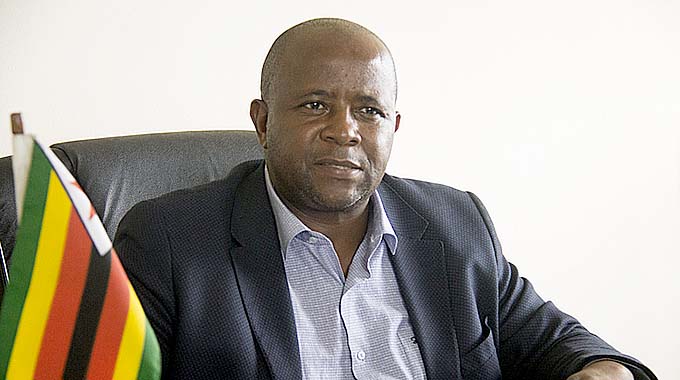US raises new hurdles to re-engagement

Herald Reporter
The United States government has proposed multiple prescriptive reforms as a precondition for re-engagement with Zimbabwe’s new administration led by President Mnangagwa.
Two US senators — Messrs Jeff Flake(Republican) and Chris Coons (Democrat) — who are members of the US Senate Foreign Relations Committee, on Thursday unveiled a proposed revised version of the Zimbabwe Democracy and Economic Recovery Act (ZDERA) of 2001.
But commentators yesterday indicated the new conditions, particularly on elections, were eerily similar to demands made by the MDC Alliance through its Plan and Environment for A Credible Election (PEACE) document that was launched by its presidential candidate Mr Nelson Chamisa on Wednesday.
Mr Chamisa and fellow principal in the MDC Alliance coalition, Mr Tendai Biti, including Mr Dewa Mavhinga — the director of Human Rights Watch in Southern Africa, a non-governmental orgsanisation — appeared before the same US senate committee on December 13 last year and urged the US government to maintain the current sanctions regime on Harare.
Since assuming power in November last year, President Mnangagwa has insisted Zimbabwe would conduct free and fair elections later this year.
He has repeatedly appealed for peace and invited those interested to come and observe the elections.
So far, Sadc and European Union (EU)delegations have visited Zimbabwe and met different stakeholder groups to get their views on the country’s readiness to hold credible elections.
In a statement prefacing the “revised” sanctions legislation, the two US senators, who indicated they would soon be visiting the country to have meetings with “top officials”, said the new Bill outlines “expectations of the steps President Mnangagwa and other leaders should take” before the sanctions were lifted.
“After 37 years of suffering under the repressive rule of Robert Mugabe, the people of Zimbabwe should be excited about the possibility of a brighter future. To ensure conditions throughout the country improve, the international community should insist on concrete actions from the new government of Zimbabwe before lifting sanctions and renewing investment in the country,” said Senator Coons in the joint statement from the senators.
“This bill is intended to outline the US Senate’s expectations of the steps President Mnangagwa and other leaders should take. We look forward to visiting Zimbabwe, meeting with its top officials, and assessing the steps they are taking to hold free, fair, and credible elections as well as to advance broader economic and political reforms to improve the lives of all the citizens of Zimbabwe,” he said.
Most of the conditions attached to the conditions for re-engagement are outlined in Section 4 of the proposed Bill.
The US wants Government to release a biometric voters’ roll that will be endorsed by all political party, and at no cost to them.
It also wants “an independent electoral management body, whose members are selected by all political parties. There are currently more than 100 political parties registered with the Zimbabwe Electoral Commission (ZEC).
The proposed law indicates the Zimbabwe Defence Forces (ZDF) “are neither permitted to actively participate in campaigning for any candidate nor to intimidate voters, and must verifiably and credibly uphold their constitutionally mandated duty to respect the fundamental rights and freedoms of all persons and be non-partisan in character,” reads part of the Bill.
International observers, it says, should be allowed to observe the entire electoral process.
Further, the Government is expected to acknowledge human rights abuses, including ordering “an immediate inquiry into the disappearance of prominent human rights activists, including Patrick Nabanyama, Itai Dzamara, and Paul Chizuze”.
MDC Alliance presidential candidate Mr Chamisa came up with similar 10 demands outlined in the PEACE document launched this week.
Mr Chamisa said if his demands were not met, there would be no elections and threatened to lead street protests.
However, the new Government has committed itself to conduct a free, fair and credible election, with President Mnangagwa inviting opposition leaders for a pre-election meeting.
In January, President Mnangagwa also signed the National Peace and Reconciliation Bill, which gives legal underpinning to the National Peace and Reconciliation Commission, whose mandate is not only to bring closure to some of the unfortunate past “abuses”, but to ensure that it creates an environment for a peaceful future for Zimbabweans.
International observers, including from the US and the European Union bloc, have also been invited, among some of the far-reaching concessions that are being made to guarantee a free poll.
Mr Nick Mangwana, Zanu-PF’s representative in the UK and mainland Europe, intimated that local activists could have contributed to the drafting the US Bill.
“So which Zim activists drafted that Zidera amendment Bill? If one looks closely, the fingerprints are all over it and the authors can stand out. Sorry Senator Flake, it wasn’t you. Pushing for devolution, SADC Tribunal? Apologising for past conflicts? Senator varikuitiswa (Senator is being used),” he said on Twitter.









Comments